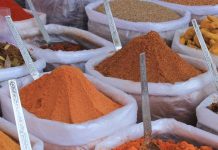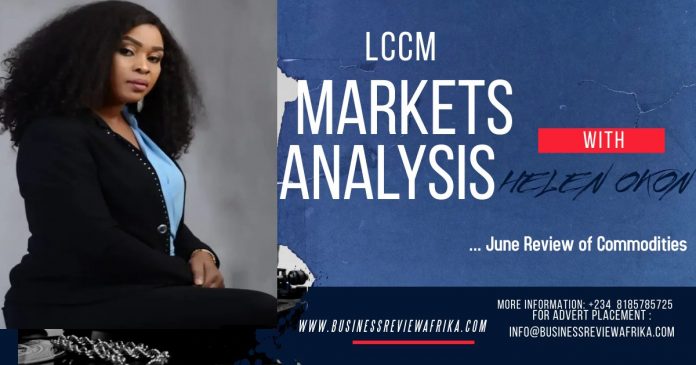The first edition of Labour, Commodities, Capital and Money (LCCM) Markets Analysis ‘June Commodities Review’ will hit your screens soon.
Africa is one of the fastest-growing consumer markets in the world. Household consumption has increased even faster than its gross domestic product (GDP) in recent years—and that average annual GDP growth has consistently outpaced the global average.
With the increasing affluence, population growth, urbanization rates, Africa’s emerging economies present exciting opportunities for expansion in retail and distribution. In fact, consumer expenditure on the continent has grown at a compound annual rate of 3.9 percent since 2010 and reached $1.4 trillion in 2015. This figure is expected to reach $2.1 trillion by 2025, and $2.5 trillion by 2030. Also, in 2030, if the African Continental Free Trade Area (AfCFTA) is properly implemented and annexed, a single continental market for goods and services will be operational, offering corporations different points of entry to the continent and a potential market of 1.7 billion people.
By 2030, the largest consumer markets will include Nigeria, Egypt, and South Africa. There will also be lucrative opportunities in Algeria, Angola, Ethiopia, Ghana, Kenya, Morocco, Sudan, Tunisia, and Tanzania, among other African countries.
Africa is home to roughly 1.2 billion consumers today, projected to increase to 1.7 billion by 2030. The potential for future growth in retail and consumer spending is, therefore, bright. On the other hand, despite recording some of the fastest economic growth rates in the world over the past decade, income levels in Africa have not kept pace and household spending in the region has remained relatively stagnant.
Our focus in the month of June is on Commodities Review in Nigeria and our first stop is the popular Orange Market in Karu Local Government Area of Nasarawa State. Karu is Central Nigeria. It is close proximity to the Federal Capital Territory of Nigeria. It has an area of 2.640km2. The Nigerian economy is broadly classified into informal and formal sectors. The informal sector accounts for as much as 65% of the total economy, although the sector is not properly captured in GDP calculations due to lack of authentic and credible data.
Nigeria’s informal sector economic activities are conducted across several sectors including the agricultural, services, and industrial sectors.
Are you looking for an exciting, informative and educative program that captures the daily developments in local markets across the continent? Are you frustrated with persistent changes in prices of commodities and would want first-hand information before hitting the market? Or are you among those looking for the perfect platform to showcase your goods and services to a global audience?
Then LCCM Markets Analysis is for you. Anchored by renowned business expert and coach, Helen Okon, the show debuts in June. Okon brings over two decades of experience, pedigree and influence as an international publisher to the fore, covering some famous market spaces in Africa.
For Sponsorship and Adverts placement contact us via our email…Info@businessreviewafrika.com
Watch Out!!!

























